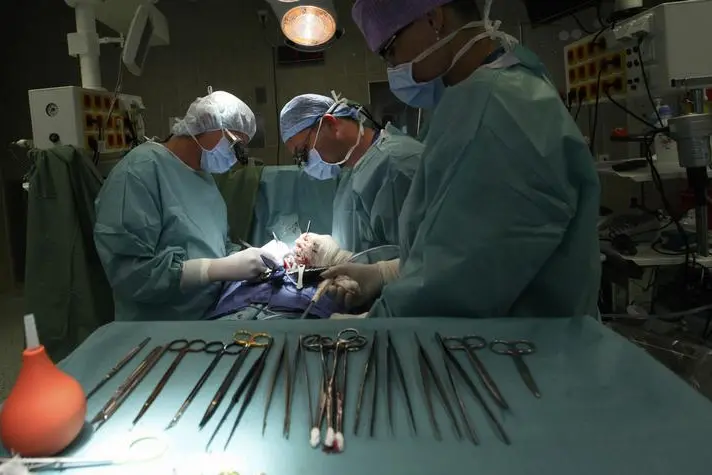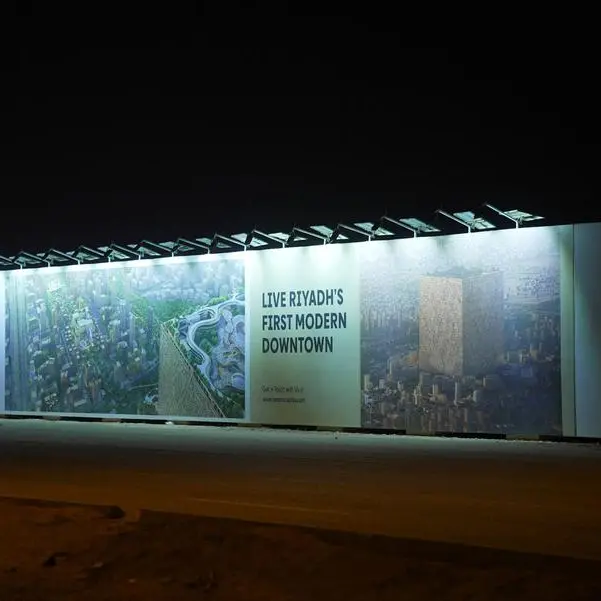PHOTO
02 February 2017
By Shane McGinley
Heart disease is the biggest cause of deaths in Dubai, but advances in 3D printing are increasingly offering ways to help combat the disorder, according to an American cardiac professor.
Around a third of deaths in Dubai are a result of heart disease and it is the biggest cause of death in the emirate, according to a survey released late last year by the Dubai Health Authority (DHA).
New technology is being used to produce 3D printed replicas of patients’ organs so surgeons can practice on the models before being faced with the actual organ during surgery.
“Heart failure is a really big deal in this region,” Dr Stephen Little, associate professor of clinical cardiology at the Houston Methodist Institute for Academic Medicine in the United States, told Zawya in an interview on the sidelines of the Arab Health exhibition in Dubai this week.
“We have had patients sent to us (from the Gulf) with heart valve diseases. They tend to be young in their 30s and 40s. If they came today we would approach their conditions different now that we have 3D capability,” he said, adding that he has seen interest on his first visit to the emirate in some of the methods he has developed using 3D printing.
While 3D printing technology can be used to replicate copies of body parts like bones and teeth, it is not yet advanced enough to be used to replace complex human organs like the heart or lung.
“Cardiac is different as it is not approved to have 3D printed material inside the human heart. It works for a hip or a jaw bone. Typically you can’t 3D print the function of those organs… The heart, you can’t as it is always moving on you so it is challenging,” Dr Little said.
Using printed replicas of such organs can help mitigate risks by anticipating complications and refining procedures.
“We are not implanting the 3D models… Instead of doing it on a live beating heart you are doing it on a replica of the heart ahead of time,” he said. “You can train on it and anticipate complications. You learn ahead of time, rather than during the procedure… It will shorten the duration of the procedure, increase safety and potentially shorten the length of the hospital stay.”
Teething issues
The DHA is positive about the benefits of 3D printing technology in healthcare and this week announced it will begin using it to print 3D models of teeth.
“Using this technology, a dentist will simply scan the teeth using an intra-oral scanner, which will create a digital impression (image).This image is then sent across to the 3D printing machine through the intranet from different Dental Clinics within DHA, which then replicates the image as a 3D model,” Dr Hamda Mesmar, director of the dental services department at the DHA, said in a press statement.
“The 3D image helps us with accurate planning and precision especially for complicated dental procedures and surgeries. Patients will greatly benefit from the use of this technology as it helps in better patient outcomes as well as substantially reduces waiting time and cost of care.”
The authority also unveiled new technology which can create 3D printed prosthetic limbs. The machines, made in Germany, can create legs which cost less than a sculpted prosthetic and can be made in less time.
“Using 3D technology for surgeries and other medical purposes is the future,” Humaid Al Qatami, the director general of the DHA, was quoted as saying in a report by Dubai-based Gulf News
“We are currently working on developing regulations for 3D printing for patients and the medical sector in Dubai… We are also looking at training doctors and health care professionals on the use of this technology,” he added.
Dubai has embraced 3D technology and its possibilities across a multitude of different sectors. Last year it launched the world’s first 3D printed office building and the government aims to make Dubai and the UAE a global hub for 3D printing technology by the year 2030.
As part of a bid to inspire advances in the development of the technology, the Dubai Future Foundation in October agreed to partner with American multinational software corporation Autodesk to provide $100 million in funding for entrepreneurs and start-ups in the 3D printing sector in the region, according to a report by Dubai-based daily newspaper Khaleej Times.
© Zawya 2017
By Shane McGinley
Heart disease is the biggest cause of deaths in Dubai, but advances in 3D printing are increasingly offering ways to help combat the disorder, according to an American cardiac professor.
Around a third of deaths in Dubai are a result of heart disease and it is the biggest cause of death in the emirate, according to a survey released late last year by the Dubai Health Authority (DHA).
New technology is being used to produce 3D printed replicas of patients’ organs so surgeons can practice on the models before being faced with the actual organ during surgery.
“Heart failure is a really big deal in this region,” Dr Stephen Little, associate professor of clinical cardiology at the Houston Methodist Institute for Academic Medicine in the United States, told Zawya in an interview on the sidelines of the Arab Health exhibition in Dubai this week.
“We have had patients sent to us (from the Gulf) with heart valve diseases. They tend to be young in their 30s and 40s. If they came today we would approach their conditions different now that we have 3D capability,” he said, adding that he has seen interest on his first visit to the emirate in some of the methods he has developed using 3D printing.
While 3D printing technology can be used to replicate copies of body parts like bones and teeth, it is not yet advanced enough to be used to replace complex human organs like the heart or lung.
“Cardiac is different as it is not approved to have 3D printed material inside the human heart. It works for a hip or a jaw bone. Typically you can’t 3D print the function of those organs… The heart, you can’t as it is always moving on you so it is challenging,” Dr Little said.
Using printed replicas of such organs can help mitigate risks by anticipating complications and refining procedures.
“We are not implanting the 3D models… Instead of doing it on a live beating heart you are doing it on a replica of the heart ahead of time,” he said. “You can train on it and anticipate complications. You learn ahead of time, rather than during the procedure… It will shorten the duration of the procedure, increase safety and potentially shorten the length of the hospital stay.”
Teething issues
The DHA is positive about the benefits of 3D printing technology in healthcare and this week announced it will begin using it to print 3D models of teeth.
“Using this technology, a dentist will simply scan the teeth using an intra-oral scanner, which will create a digital impression (image).This image is then sent across to the 3D printing machine through the intranet from different Dental Clinics within DHA, which then replicates the image as a 3D model,” Dr Hamda Mesmar, director of the dental services department at the DHA, said in a press statement.
“The 3D image helps us with accurate planning and precision especially for complicated dental procedures and surgeries. Patients will greatly benefit from the use of this technology as it helps in better patient outcomes as well as substantially reduces waiting time and cost of care.”
The authority also unveiled new technology which can create 3D printed prosthetic limbs. The machines, made in Germany, can create legs which cost less than a sculpted prosthetic and can be made in less time.
“Using 3D technology for surgeries and other medical purposes is the future,” Humaid Al Qatami, the director general of the DHA, was quoted as saying in a report by Dubai-based Gulf News
“We are currently working on developing regulations for 3D printing for patients and the medical sector in Dubai… We are also looking at training doctors and health care professionals on the use of this technology,” he added.
Dubai has embraced 3D technology and its possibilities across a multitude of different sectors. Last year it launched the world’s first 3D printed office building and the government aims to make Dubai and the UAE a global hub for 3D printing technology by the year 2030.
As part of a bid to inspire advances in the development of the technology, the Dubai Future Foundation in October agreed to partner with American multinational software corporation Autodesk to provide $100 million in funding for entrepreneurs and start-ups in the 3D printing sector in the region, according to a report by Dubai-based daily newspaper Khaleej Times.
© Zawya 2017





















